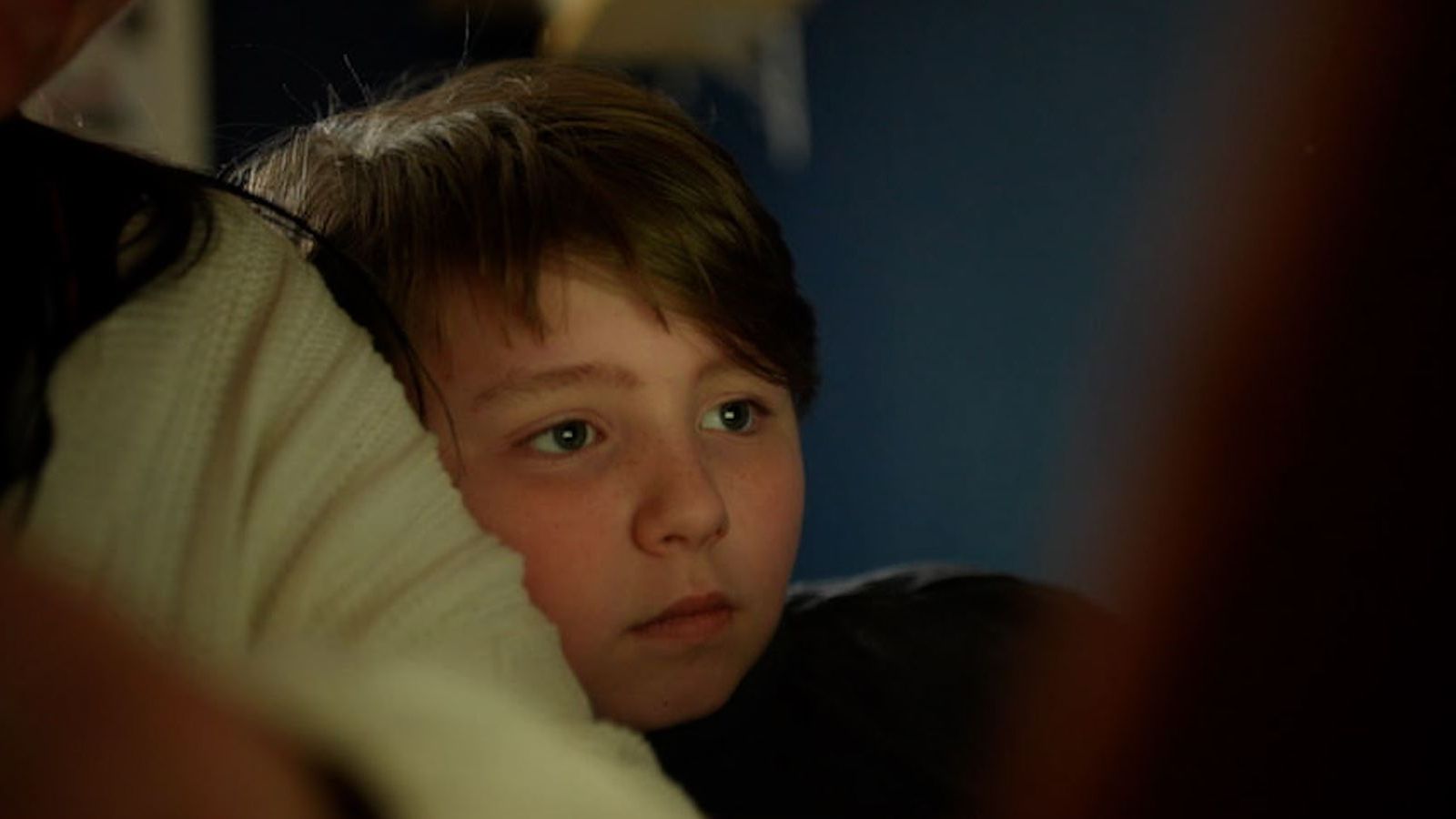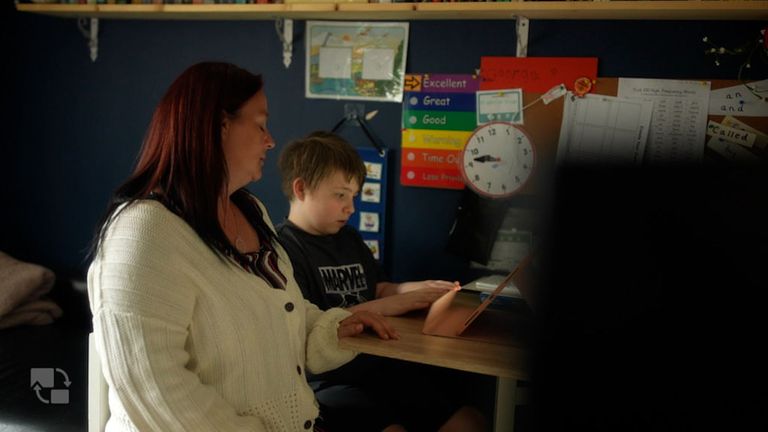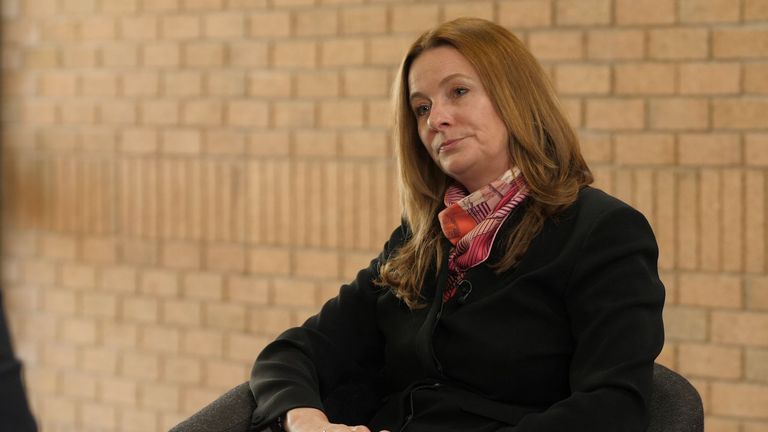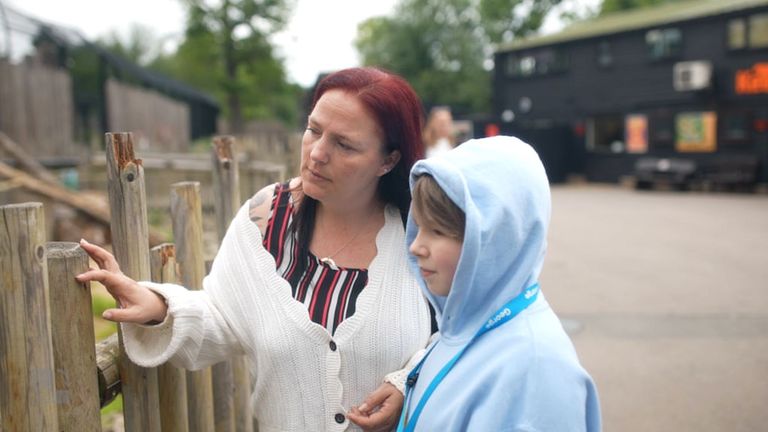Thousands of children with special educational needs or disabilities are missing out on the education they are entitled to because of huge delays in the system designed to support them.
A record half a million pupils now have an Education, Health and Care Plan (EHCP) – a legal document setting out a child or young person’s special educational needs, the support they require, and the outcomes they would like to achieve.
The plans must be issued within 20 weeks of being applied for, but analysis of government data by Sky News reveals this deadline is missed in a staggering half of all cases, meaning thousands of children are having to wait.
Councils accuse the government of “losing its grip” on the crisis and have called for more funding to address the soaring demand.
George is due to go to high school next year but cannot read or write.
He has a complex speech disorder that makes it hard for him to learn, and he has been waiting years for a diagnosis to see if he has autism.
The 10-year-old was turned down twice for an EHCP but finally secured one last year. It was meant to give him access to extra help – including support for his speech and learning disorder.
He spent all of his education in a mainstream school until his mother Rachael reluctantly withdrew him because she says the school could no longer meet his needs.
“His plan says he should be getting speech therapy. But he isn’t. Everything on his plan should be provided. That’s the whole point. But he’s not getting it,” she told Sky News.
In response to this crisis, the government has set out a plan to improve SEND (special educational needs and disabilities) provision – including a pledge to spend more than £2.6bn building more special schools. But the measures will not be rolled out until at least 2025.
In an exclusive interview with Sky News, Education Secretary Gillian Keegan admitted the government’s SEND improvement plan needed time to make an impact.
Asked specifically about George, who is currently not receiving any formal education, Ms Keegan said: “So there isn’t a place for George and George needs a place. That’s why we are putting an extra £2.6bn to build those new places. He will be helped, but he won’t be helped as much as we want to, as quickly as we want to.”
George has not been to school for the last six months, and his mum says he is slipping behind on his education as each day passes.
“I’m actually really sad. I think that George has been let down – not only by the school and local authority, but sometimes I feel like by me,” Rachael told us.
“I’m his mum and I should be able to give him really simple things like an education. And I am struggling to do that.”
Rachael has no teaching experience but has turned their living room into a makeshift classroom. She’s been forced to quit her job to educate George.
“There isn’t another option at the moment, but it can’t be a permanent thing. We are a household that is used to two wages and we live in a way that means we need two wages. It’s not doable.”
Rachael is paying for George to access online courses and for educational trips to places like the zoo.
They have applied to four special schools in their local area but have had a rejection letter from all of them. George’s education is on hold.
A spokesman for BMAT Education, which runs George’s primary school, told Sky News they had worked closely with George and his mum since he joined the school aged three.
“Funded education is available [to George] both in school, and remotely, though he is not currently attending,” he said.
“The school … has worked with the local authority and has successfully obtained an Education Health and Care Plan for George. At time of writing, no additional SEND funding has been received.
“We are confident that, with the EHCP in place, the local authority will find the right provision, with the resources, to meet George’s needs.”
Essex County Council has a legal obligation to find George appropriate educational provision.
A spokesperson told Sky News: “It would be inappropriate to comment on individual cases.
“Any concerns raised by parents are dealt with according to our established processes and we are in touch with the family directly.
“Essex County Council is committed to ensuring that every child in the county has the support they need to meet their educational potential, and that they receive all the necessary support and resources to meet any special educational needs or disabilities.”
Councillor Louise Gittins, chair of the Local Government Association’s Children and Young People Board, said: “Councils share the government’s ambition of making sure every child with special educational needs and disabilities gets the high-quality support that meets their needs.
“However, while the measures announced will help to fix some of the problems with the current system, they do not go far enough in addressing the fundamental cost and demand issues that result in councils struggling to meet the needs of children with SEND.”



